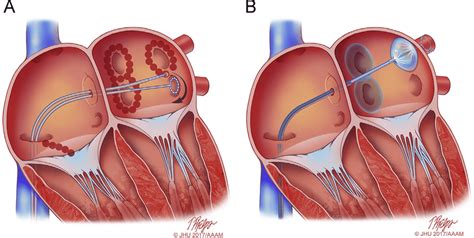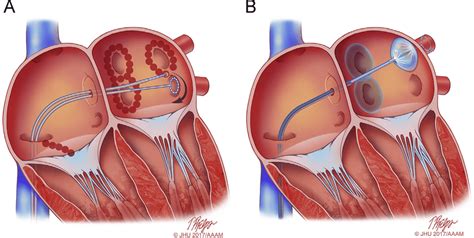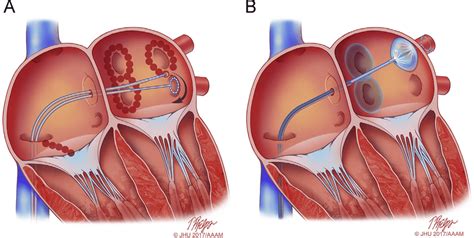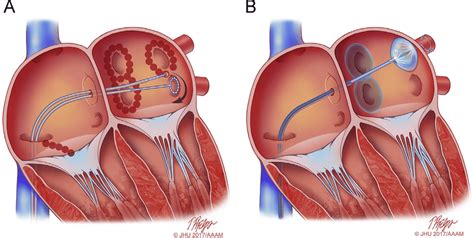Intro
Learn about Atrial Fibrillation Catheter Ablation, a minimally invasive procedure treating irregular heartbeats with cardiac ablation, radiofrequency ablation, and electrophysiology mapping.
Atrial fibrillation is a common type of irregular heartbeat, also known as arrhythmia, that can increase the risk of stroke, heart failure, and other heart-related complications. One of the most effective treatments for atrial fibrillation is catheter ablation, a minimally invasive procedure that uses energy to destroy the abnormal electrical pathways in the heart that cause the arrhythmia. In this article, we will delve into the world of atrial fibrillation catheter ablation, exploring its benefits, working mechanisms, and key information related to the topic.
Atrial fibrillation affects millions of people worldwide, causing symptoms such as palpitations, shortness of breath, and fatigue. While medications and lifestyle changes can help manage the condition, they may not be effective for everyone. This is where catheter ablation comes in – a procedure that has revolutionized the treatment of atrial fibrillation. By targeting the root cause of the arrhythmia, catheter ablation can significantly improve the quality of life for individuals with atrial fibrillation.
The importance of treating atrial fibrillation cannot be overstated. If left untreated, the condition can lead to serious complications, including stroke, heart failure, and even death. Catheter ablation offers a safe and effective way to treat atrial fibrillation, reducing the risk of these complications and improving overall health outcomes. With its high success rate and minimal recovery time, catheter ablation has become a popular treatment option for individuals with atrial fibrillation.
What is Atrial Fibrillation Catheter Ablation?

The procedure is typically performed under general anesthesia or sedation, and can take several hours to complete. The cardiologist will use imaging techniques, such as fluoroscopy or intracardiac echocardiography, to guide the catheter and visualize the heart. The energy used to destroy the abnormal electrical pathways can be either radiofrequency energy or cryoenergy, both of which are effective in treating atrial fibrillation.
Benefits of Atrial Fibrillation Catheter Ablation
The benefits of atrial fibrillation catheter ablation are numerous. Some of the most significant advantages include: * Improved quality of life: By reducing the symptoms of atrial fibrillation, catheter ablation can significantly improve overall quality of life. * Reduced risk of complications: Catheter ablation can reduce the risk of stroke, heart failure, and other heart-related complications. * Minimally invasive: The procedure is minimally invasive, resulting in less scarring and a faster recovery time. * High success rate: Catheter ablation has a high success rate, with many individuals experiencing a significant reduction in symptoms.How Does Atrial Fibrillation Catheter Ablation Work?

Types of Energy Used in Atrial Fibrillation Catheter Ablation
There are two main types of energy used in atrial fibrillation catheter ablation: radiofrequency energy and cryoenergy. Both types of energy are effective in treating atrial fibrillation, but they work in different ways. * **Radiofrequency energy**: Radiofrequency energy uses heat to destroy the abnormal electrical pathways. This type of energy is effective in treating atrial fibrillation, but it can also cause scarring and damage to surrounding tissue. * **Cryoenergy**: Cryoenergy uses cold temperatures to destroy the abnormal electrical pathways. This type of energy is also effective in treating atrial fibrillation, and it can reduce the risk of scarring and damage to surrounding tissue.Risks and Complications of Atrial Fibrillation Catheter Ablation

Preparation and Recovery
To prepare for atrial fibrillation catheter ablation, individuals should: * **Stop taking certain medications**: Certain medications, such as blood thinners, may need to be stopped before the procedure. * **Avoid eating and drinking**: Individuals should avoid eating and drinking for several hours before the procedure. * **Plan for recovery**: Individuals should plan for recovery, including arranging for someone to drive them home and staying hydrated.After the procedure, individuals can expect to:
- Experience some discomfort: There may be some discomfort, including bruising and swelling, at the site where the catheter is inserted.
- Need to rest: Individuals should rest and avoid strenuous activities for several days after the procedure.
- Follow up with their cardiologist: Individuals should follow up with their cardiologist to verify the results of the procedure and discuss any further treatment.
Cost and Insurance Coverage

It is essential to check with your insurance provider to determine the extent of coverage and any out-of-pocket costs. Additionally, some cardiologists may offer financing options or package deals that can help reduce the cost of the procedure.
Conclusion and Next Steps
Atrial fibrillation catheter ablation is a safe and effective treatment option for individuals with atrial fibrillation. By understanding the benefits, working mechanisms, and key information related to the topic, individuals can make informed decisions about their treatment. If you are considering catheter ablation, it is essential to consult with a cardiologist to discuss your options and determine if the procedure is right for you.We invite you to share your thoughts and experiences with atrial fibrillation catheter ablation in the comments below. If you have any questions or concerns, please do not hesitate to reach out. By working together, we can improve our understanding of this life-changing procedure and help individuals with atrial fibrillation live healthier, happier lives.
What is atrial fibrillation catheter ablation?
+Atrial fibrillation catheter ablation is a minimally invasive procedure that uses energy to destroy the abnormal electrical pathways in the heart that cause atrial fibrillation.
What are the benefits of atrial fibrillation catheter ablation?
+The benefits of atrial fibrillation catheter ablation include improved quality of life, reduced risk of complications, and a high success rate.
What are the risks and complications of atrial fibrillation catheter ablation?
+The risks and complications of atrial fibrillation catheter ablation include bleeding and bruising, infection, damage to surrounding tissue, and stroke.
